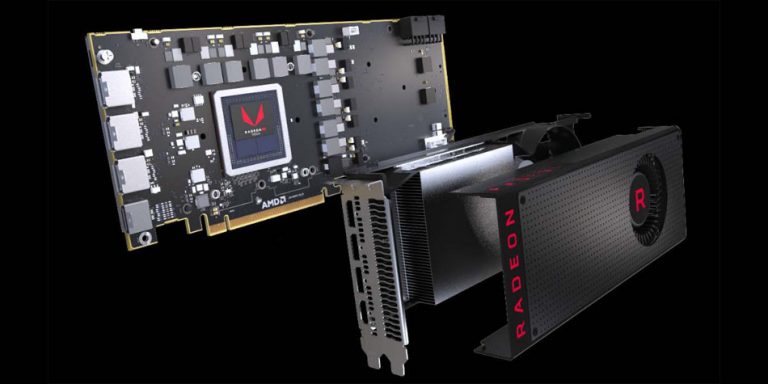It was initially perceived as a big opportunity for Advanced Micro Devices, Inc. (NASDAQ:AMD). Indeed, for a few days AMD stock rallied on reports that a massive swath of computer processors from rival Intel Corporation (NASDAQ:INTC) were critically vulnerable to hackers — flaws that came to be known as Spectre and Meltdown — that wouldn’t impact Advanced Micro Devices’ chips.
As it turns out, however, CPUs made by AMD are no less flawed. They too are vulnerable to both of the two key weaknesses of Spectre, even if not susceptible to Meltdown.
But while certainly embarrassing, even if Advanced Micro Devices hadn’t been implicated in the vulnerability, Intel wouldn’t have been put in the proverbial penalty box for very long, nor would AMD stock have remained particularly special.
Spectre and Meltdown
If you’ve heard a lot about it but are still unsure what it is, here’s the simple explanation that won’t satisfy a computer security pro.
Spectre and Meltdown aren’t viruses or worms or Trojan horses that we hear a great deal about every few months. Rather, these are flaws (which are given catchy names) that could be exploited by hackers. The vulnerability lies in how the processor itself works with the motherboard it’s attached to and the operating system powering it.
More importantly, the vulnerability could give a savvy hacker access to any information or data or files found in the computer’s memory.
It wasn’t a vulnerability Advanced Micro Devices thought its microprocessors suffered, however. Indeed, the company made a point of saying shortly after the Spectre and Meltdown problems became publicly known:
“To be clear, the security research team identified three variants targeting speculative execution. The threat and the response to the three variants differ by microprocessor company, and AMD is not susceptible to all three variants. Due to differences in AMD’s architecture, we believe there is a near-zero risk to AMD processors at this time.”
As it turns out, the assumption wasn’t entirely correct, as was acknowledged Thursday afternoon.
Investors Have Short-Term Memories
In a trading environment that’s volatile and traders who love to play on the occasional “gotcha” moment all companies occasionally suffer, it’s not surprising that AMD stock soared nearly 20% in the wake of Intel’s goof. Even though a fix has since been worked out by Microsoft Corporation (NASDAQ:MSFT), Apple Inc. (NASDAQ:AAPL) and Intel, the whole thing could understandably leave investors wondering what else Intel may have missed that we don’t know about yet.
To that end, AMD may have committed an even bigger sin than Intel did. While Intel’s CPU’s clearly shipped with a design flaw, Advanced Micro Devices told customers they were safe from Spectre. Then they recanted and told them they were just as vulnerable. To investors, a mistake is bad, but not even knowing you made a mistake is worse.
Still, even if AMD’s processors weren’t vulnerable, it’s unlikely this would have turned the tide within the CPU industry that Intel dominates.
Everyone Makes Mistakes
One only has to look back through history to see how short-lived the impact of corporate mistakes are. In 2009, Toyota Motor Corp (ADR) (NYSE:TM) was forced to concede that accelerator pedals in some of its cars were designed with a flaw that ultimately claimed the lives of several drivers, yet U.S. sales of Toyota’s Camry continued to rise through 2015. General Motors Company (NYSE:GM) was thrust into the limelight due to major problems with ignition switches that ultimately claimed the lives of 124 in the United States, yet GM sold more vehicles in the U.S. last year than any other carmaker.
Even Chipotle Mexican Grill, Inc. (NYSE:CMG) is working past the complete and utter mishandling of its late-2015 E. coli embarrassment.
In fact, Intel faced a similar problem back in the mid-90’s — when the personal computer industry was still in its infancy — with its then-new Pentium processor line. They weren’t vulnerable to hackers, but perhaps more embarrassing, they were making mathematical mistakes.
The flaw didn’t prevent Intel from becoming THE big name in computer processors then. And it wouldn’t have allowed AMD to take meaningful market share away from Intel now.
Bottom Line for AMD Stock
In this case, the argument in favor of AMD stock was rendered moot anyway, but that’s beside the point. The point was and still is: It wouldn’t have mattered anyway. It wouldn’t even have mattered (and still doesn’t matter) to the extent that AMD’s processors are arguably “less vulnerable” to security breaches.
These things make for great headlines and prod investors into action. In the grand scheme of things though, this was never going to be a game-changer for Advanced Micro Devices.
The sad part? The scuttlebutt has obscured the unveiling of new tech from AMD. Namely, the next generations of its Ryzen CPUs and its Vega GPUs were announced on Monday. Investors barely got chance to notice.
As of this writing, James Brumley did not hold a position in any of the aforementioned securities. You can follow him on Twitter, at @jbrumley.

